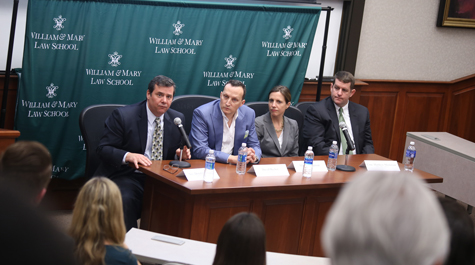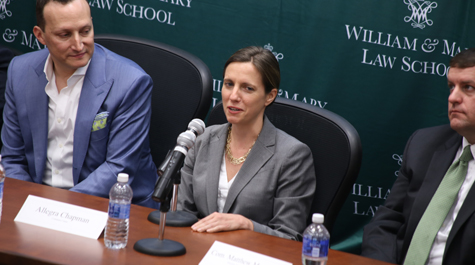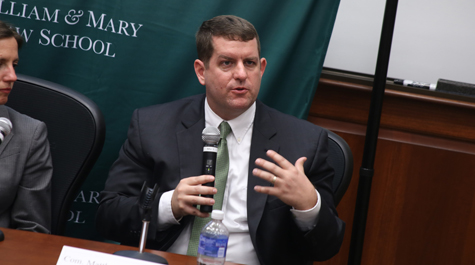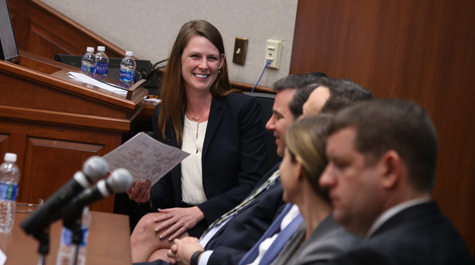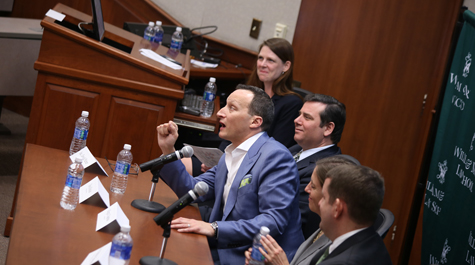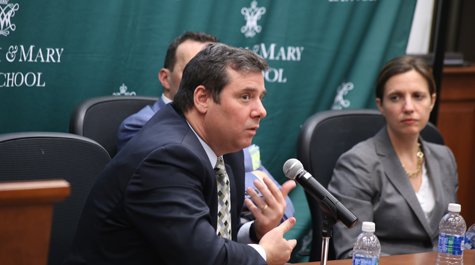Annual Election Law Symposium Focuses on Data Accuracy
William and Mary’s Election Law Society hosted its 10th annual symposium, “Fixing the Lists: Data Accuracy and Voting in 2016,” on March 17. Featuring an accomplished panel of experts in the field of election law, the event focused on the intersection of big data tracking, privacy law, and modern elections.
As the current election cycle continues to dominate the news, the discussion on the importance of accurately monitoring voter rolls, ensuring proper administration of voter rolls, and increasing voter participation was directly significant to the audience of law students, staff, and members of the Williamsburg community.
Members of the James City County election authority were also in attendance, and contributed their views during the question-and-answer session following the panel’s remarks.
Panelists included David Becker, Director of Election Initiatives at The Pew Charitable Trusts; Allegra Chapman, Director of Voting and Elections at Common Cause; Commissioner Matthew Masterson from the Election Assistance Commission; and Donald Palmer, Senior Advisor at the Bipartisan Policy Center.
Elizabeth Howard J.D. ’09, current Deputy Commissioner at the Virginia Department of Elections and co-founder of the Election Law Society, moderated the panel’s discussion.
Key topics included the incredibly complex task of voter registration lists upkeep; increasing voter engagement, particularly among millennials; and the Department of Justice’s current administration of the National Voter Registration Act, passed in 1993.
The overwhelming intricacy and difficulty that voter registration lists pose to election officials was emphasized early and often throughout the symposium. Mobility, non-automatic updates of voting records, and inconstant voter registrations only exacerbate the issue.
“The major problem with the voter registration roll today in America is that states aren’t communicating with each other about who is voting where,” Palmer said.
A substantial portion of the discussion focused on the development of the Electronic Registration Identification Center (ERIC). Operated by The Pew Charitable Trusts, ERIC seeks to add manpower to undermanned election offices by providing voter registration information.
“ERIC is all about forming a web of confidence across various data points and fields to confirm voter registrations,” Becker said.
After the panelists’ remarks, attendees participated in a question-and-answer session, followed by a reception in the Law School lobby. Both law school students and members of the community noted the panelists’ expertise, the liveliness of the question and answer time, and the excellent presentation of the symposium by the Election Law Society.
About William & Mary Law School
Thomas Jefferson founded William & Mary Law School in 1779 to train leaders for the new nation. Now in its third century, America's oldest law school continues its historic mission of educating citizen lawyers who are prepared both to lead and to serve.
